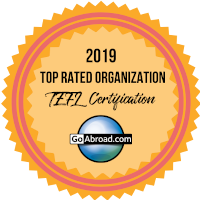Do you dream of a future that involves visiting exciting and exotic countries, meeting new and interesting people, and being immersed in unfamiliar cultures? If so, we are ready to help make those dreams come true with our range of internationally recognized TEFL certification courses.
International TEFL and TESOL Training (ITTT) have been at the forefront of teacher training for over 25 years and with our wide choice of online and in-class courses we are sure we have the perfect course to suit every individual situation. Once graduated, our trainees have a distinct advantage in the worldwide job market as our qualifications are actively sought after by employers in all corners of the globe. Whether you choose to study from home via one of our online TEFL courses, or you would prefer hands-on instruction at one of our international training centers, a TEFL certificate from ITTT will ensure your new teaching career gets off to a flying start.




















